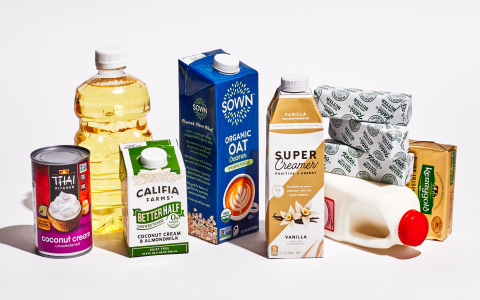Coconut oil has become kind of a superstar in kitchens everywhere. I mean, it’s got this tropical vibe, a nice subtle sweetness, and people rave about its health perks. But, honestly, there are plenty of reasons you might want to swap it out. Maybe you ran out and can’t get to the store right away, or maybe you just don’t love that coconut flavor in your savory dishes. Or perhaps you’re trying to watch your saturated fat intake or avoid it altogether. Whatever the reason, the question “What can I substitute coconut oil with?” pops up a lot, and it’s a good one.
So, let’s talk about some easy alternatives that can work just as well — sometimes even better — depending on what you’re cooking or baking.
First off, why even bother substituting coconut oil? Well, for starters, some folks have allergies or sensitivities to coconut or just don’t like the taste. Others might find it too pricey or hard to find. And then there’s the whole health angle — coconut oil is mostly saturated fat, which some people try to limit. Plus, the way it behaves when cooking (solid at room temp, melts easily) isn’t always ideal for every recipe.
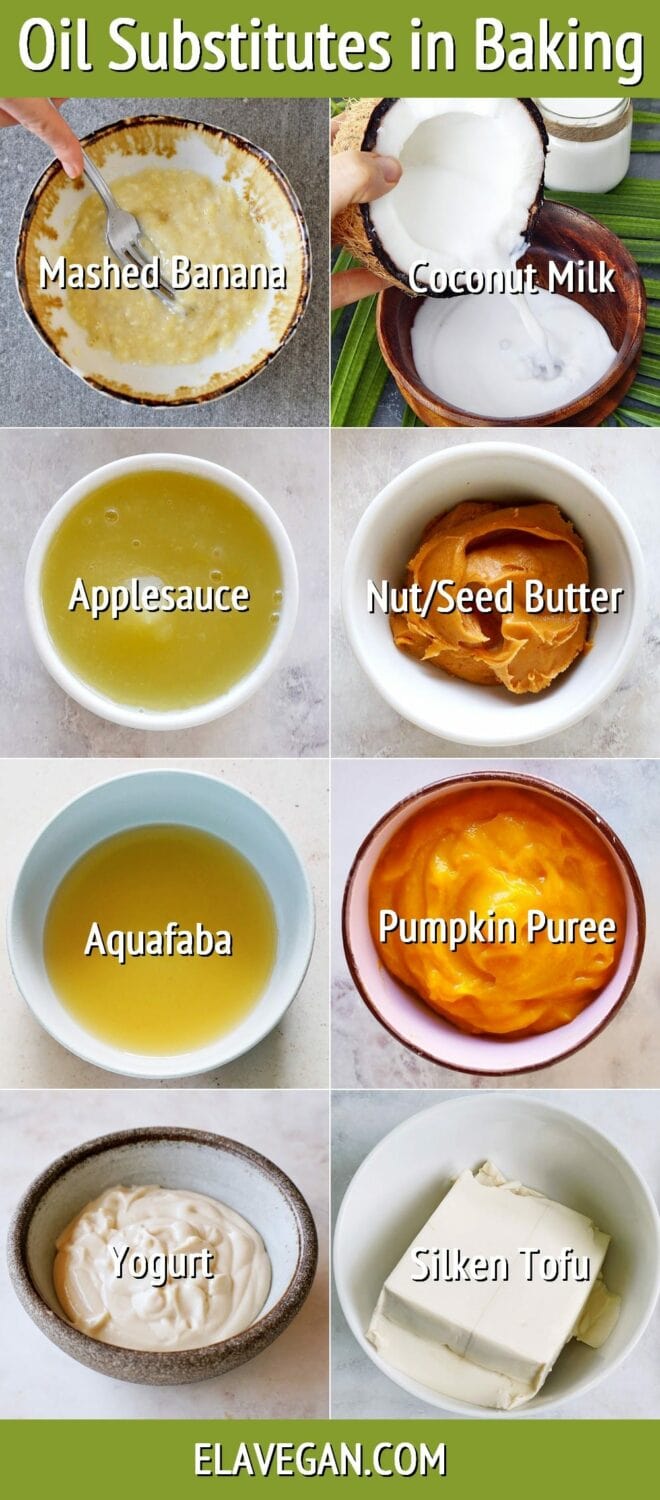
Before we jump into the substitutes, a quick note on what makes coconut oil special: it’s packed with saturated fats (about 82%), which is why it’s solid at room temperature and pretty stable when heated. It also has these medium-chain triglycerides (MCTs) that some say give you a little energy boost. The smoke point varies — virgin coconut oil smokes around 350°F, while refined can handle up to 400°F. This matters because it affects how you can cook with it without burning.
Alright, now onto the substitutes. Here are my top five picks, each with its own perks and quirks.
-
Olive Oil – The Heart-Healthy Classic
Olive oil is probably the most popular alternative out there. It’s loaded with monounsaturated fats, which are great for your heart, and it’s got antioxidants that make it a solid health pick. The flavor? Well, it’s got that fruity, sometimes peppery kick, which can be amazing in Mediterranean dishes but might not be what you want in your cookies or cakes. Also, it has a decent smoke point (around 375°F), so it’s good for sautéing and roasting but maybe not the highest heat frying. If you want to bake with it, go for a light or mild olive oil to keep the flavor subtle. -
Butter – The Flavorful Traditionalist
Butter is a classic for a reason. It gives recipes a rich, creamy texture and a lovely flavor that’s hard to beat. It’s also got saturated fats like coconut oil, but with the bonus of vitamins A and D, plus butyrate, which some research suggests is good for your gut. The downside? It’s dairy, so no-go if you’re vegan or lactose intolerant. Butter melts around the same temp as virgin coconut oil, so it’s a pretty straightforward swap in baking and cooking. -
Avocado Oil – The High-Heat Powerhouse
If you’re frying or grilling at high temperatures, avocado oil is your friend. It has a super high smoke point (around 520°F), which means it won’t break down and create nasty flavors or harmful compounds. Plus, it’s packed with monounsaturated fats and vitamin E. Flavor-wise, it’s mild and buttery, so it won’t mess with your dish’s taste. Perfect for stir-fries, roasting, or even baking if you want a neutral oil. -
Canola Oil – The Neutral All-Rounder
Canola oil is kind of the quiet hero in cooking. It’s affordable, easy to find, and has a neutral flavor that doesn’t interfere with your food. It’s mostly monounsaturated fat with a good chunk of omega-3s, which is a nice bonus. Its smoke point is around 400°F, making it versatile for frying, baking, and sautéing. If you want a no-fuss substitute that just works, canola oil fits the bill.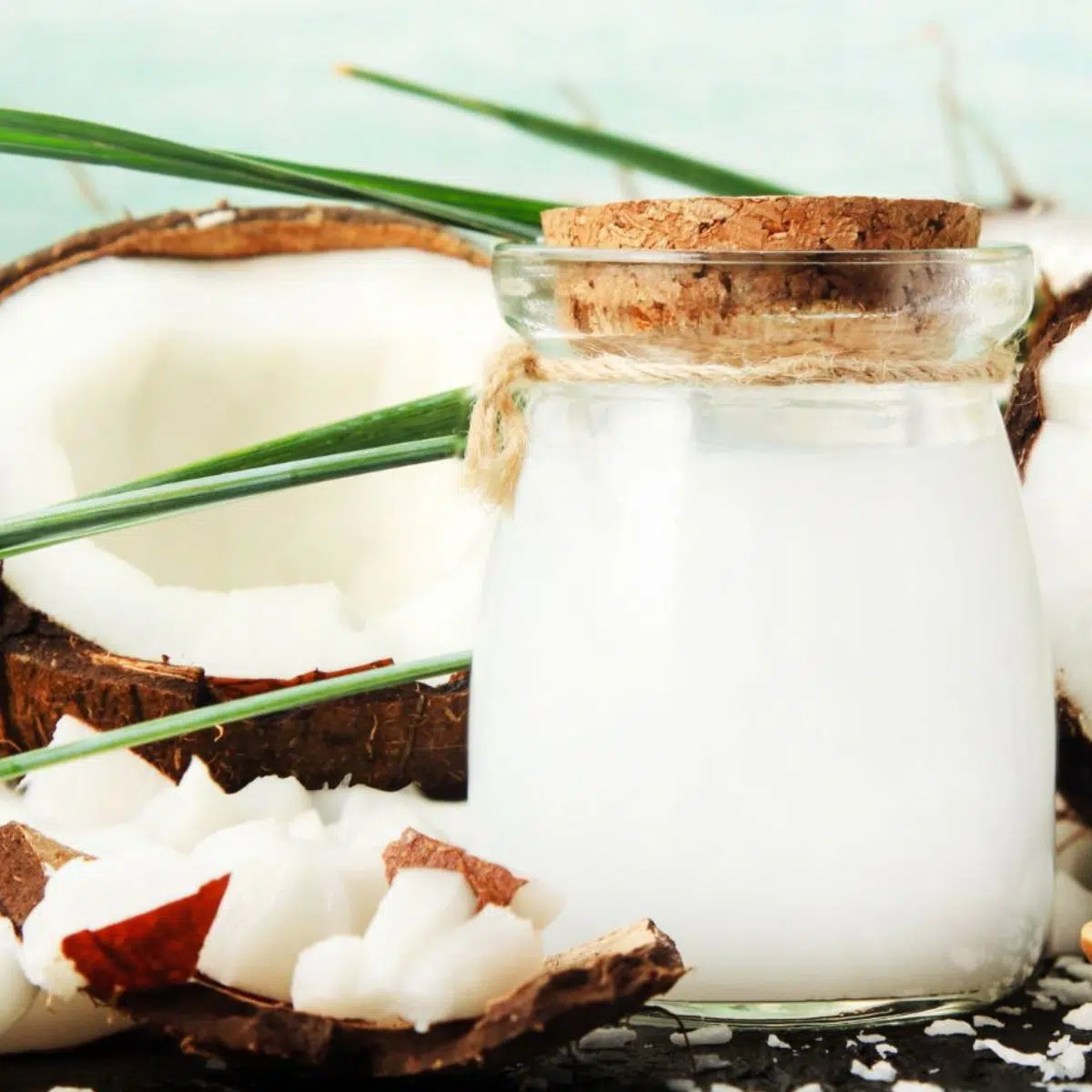
-
Sunflower Oil – The Light and Nutritious Option
Sunflower oil is another mild-flavored oil with a high smoke point (about 440°F). It’s rich in vitamin E and polyunsaturated fats. It’s great for frying, baking, and roasting. If you want something light that won’t overpower your dish, this is a solid pick.
Now, a quick heads-up on how to swap these oils in your recipes. Generally, you can replace coconut oil with the substitute in a 1: ratio. But keep in mind, coconut oil is solid at room temperature, so when you swap it for a liquid oil, your batter or dough might feel a bit different — sometimes softer or less structured. Also, think about the flavor: olive oil’s fruity notes might be great in a savory dish but weird in a chocolate cake. And always consider the cooking temperature to avoid burning your oil.
Here’s a quick snapshot comparing the fats and smoke points:
-
Coconut oil: 82% saturated fat, smoke point 350-400°F, coconut flavor
-
Olive oil: 73% monounsaturated, smoke point 375°F, fruity flavor
-
Butter: 51% saturated fat, smoke point 350°F, creamy flavor
-
Avocado oil: 70% monounsaturated, smoke point 520°F, mild flavor
-
Canola oil: 63% monounsaturated, smoke point 400°F, neutral flavor
-
Sunflower oil: 66% polyunsaturated, smoke point 440°F, neutral flavor
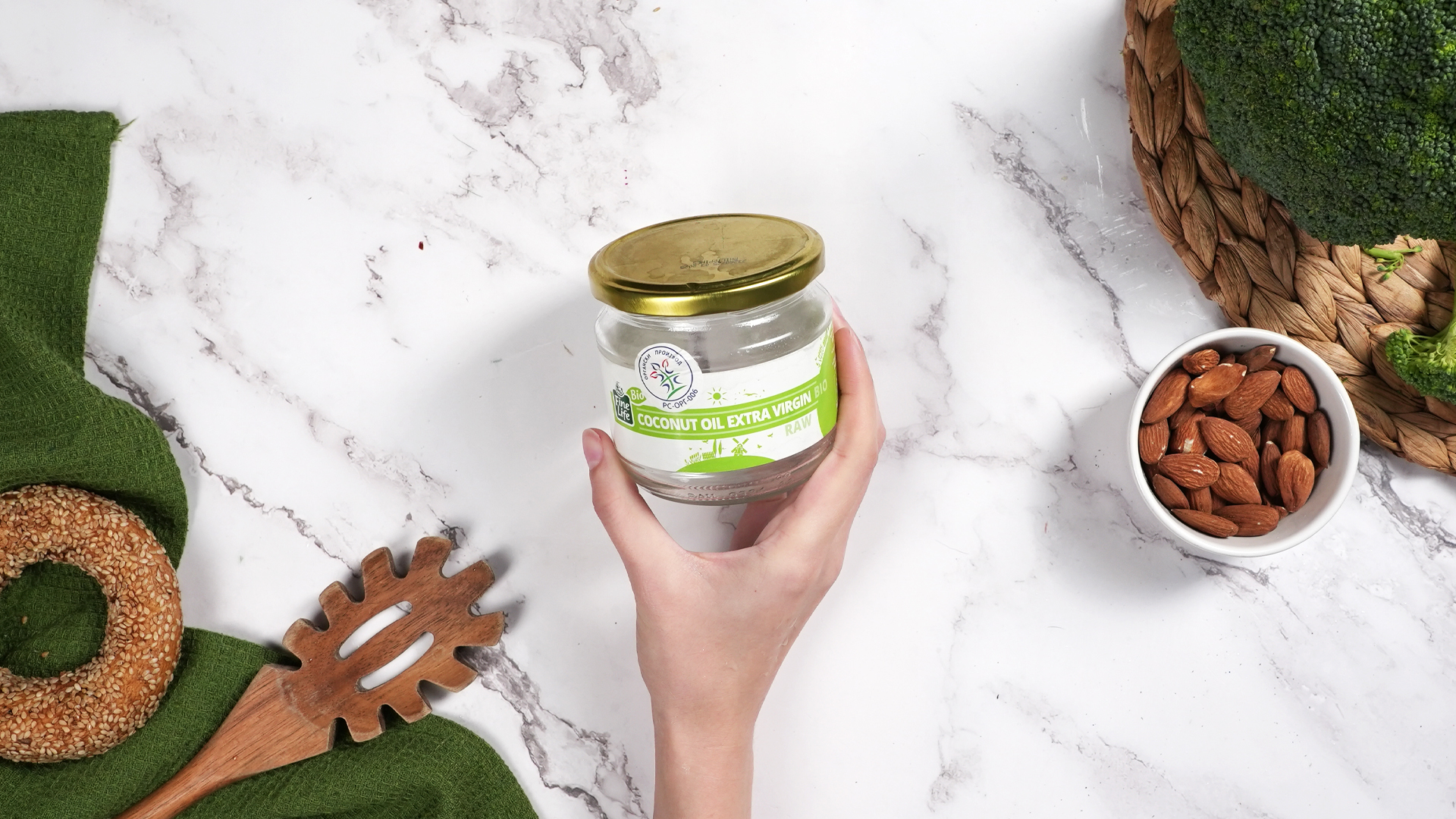
Now, some common questions I get asked:
Can I just swap olive oil for coconut oil in baking?
Yes, but be aware olive oil has a stronger flavor. If you’re making something like muffins or brownies, try a light olive oil or go with a more neutral oil if you want to keep the original taste.
Is butter healthier than coconut oil?
It depends. Butter has saturated fats too but also offers vitamins and other nutrients. If you’re watching heart health, oils rich in monounsaturated fats like olive or avocado oil might be better. But butter adds amazing flavor and texture.
What’s best for frying?
Avocado and sunflower oils are great because of their high smoke points. They won’t burn easily and keep your food tasting fresh.
Are these substitutes vegan?
All except butter are plant-based and vegan-friendly.
Will my baked goods turn out different?
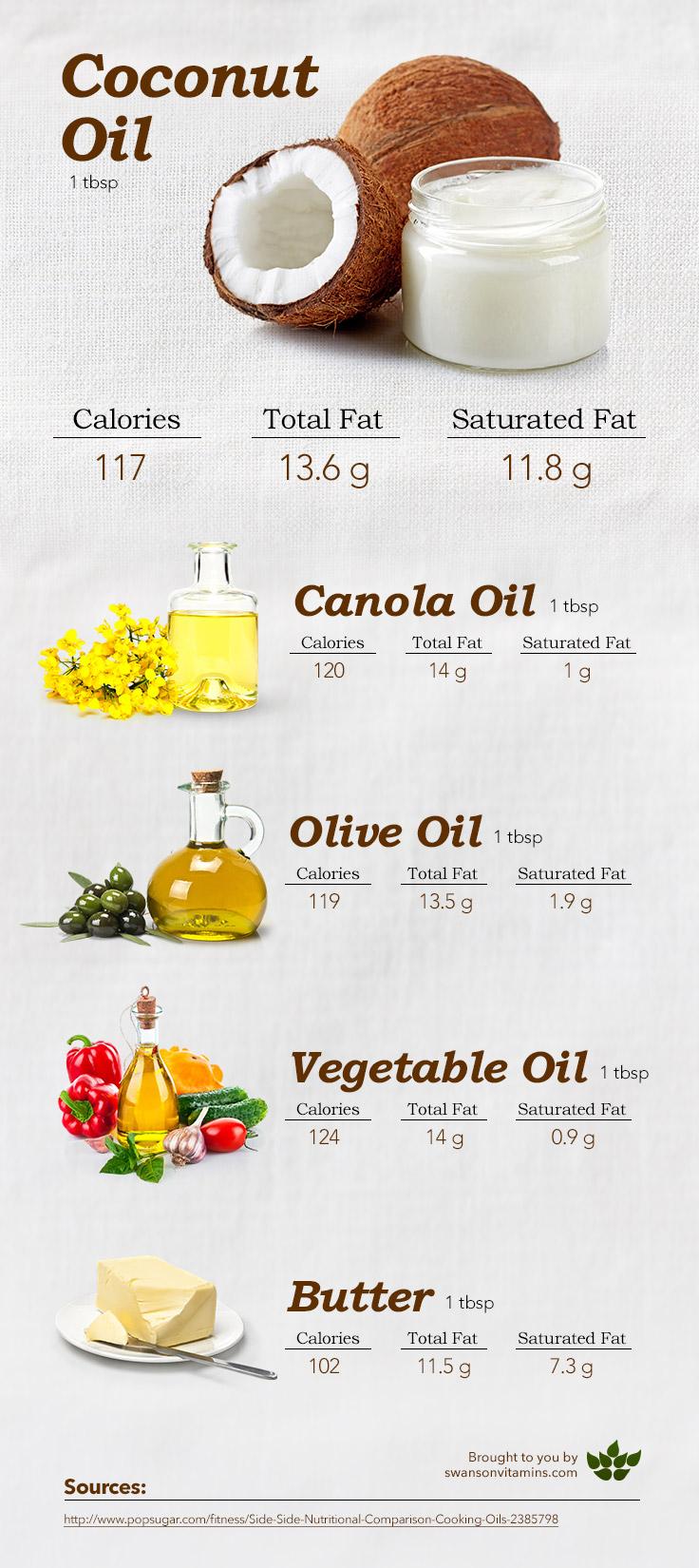
Probably a little. Coconut oil’s solidity helps with texture, so switching to liquid oils might make your cakes or cookies a bit denser or moister. Sometimes you might need to tweak the recipe a bit.
In the end, picking the right substitute is about what you’re cooking, your taste preferences, and your health goals. Whether you want the heart-healthy punch of olive oil, the rich creaminess of butter, or the high-heat power of avocado oil, there’s a substitute out there that’ll work for you.
So next time you’re wondering what to do without coconut oil, remember these options. They’re easy, versatile, and can make your cooking just as delicious — sometimes even better!
